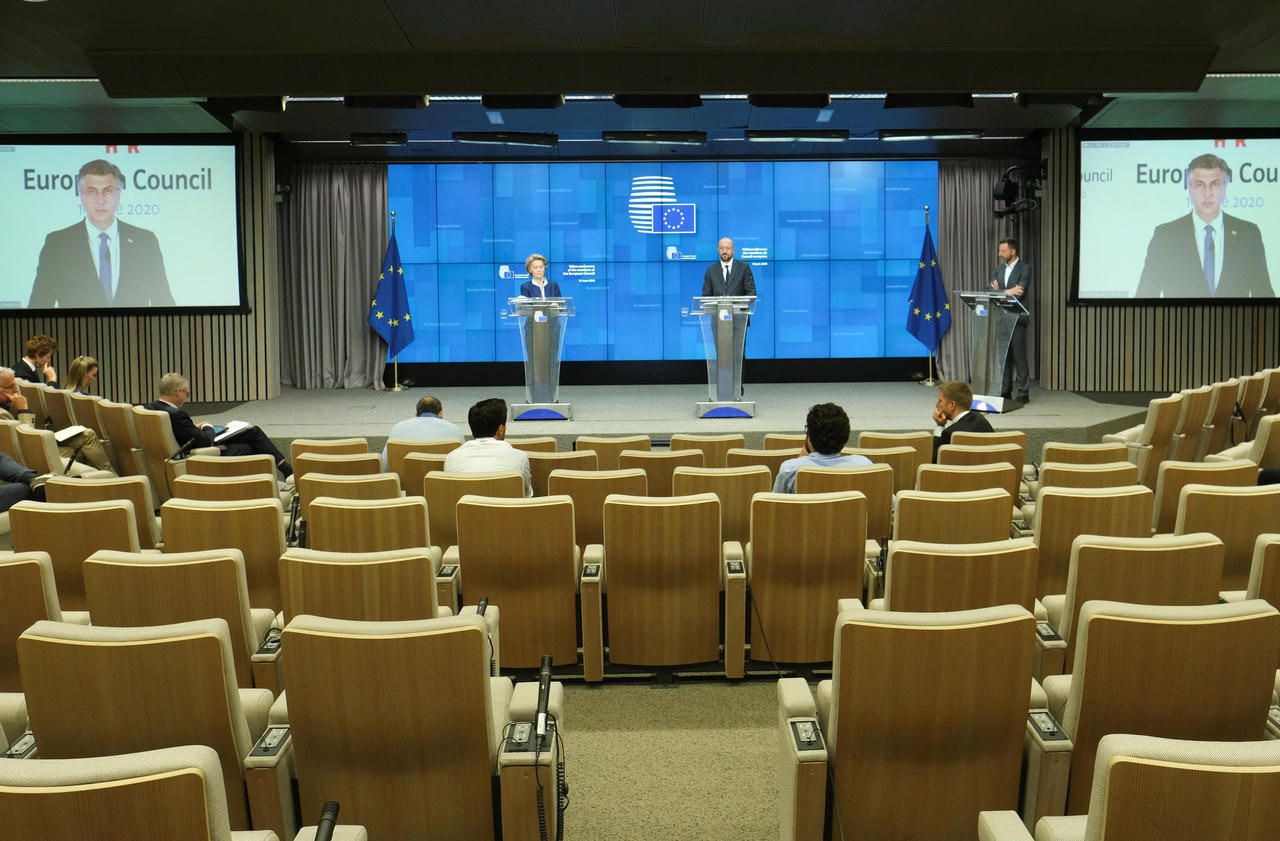Meeting in videoconference this Friday, the 27 European leaders decided… to meet physically in mid-July in Brussels. Clearly, there are too many differences between member states on the massive post-coronavirus recovery plan to be able to act immediately. However, as insisted Friday Lagarde, patroness of the European Central Bank (ECB), "the sooner the package is adopted, the better for the EU economy", at a time when forecasts of " negative growth ”- therefore of recession - for the year 2020 oscillate between minus 3 and minus 10 percentage points of GDP depending on the country.
The packet? This is the 750 billion euros put on the table by the European Commission, which itself took up the proposals of the Franco-German couple. And in particular its flagship measure, resulting from a spectacular evolution of Chancellor Angela Merkel, consisting in borrowing this sum - at least 500 on the 750 billion euros - on the markets on behalf of the EU, and not State by State. “This principle of joint debt has been implemented. It is encouraging because it was unimaginable a month ago, ”said a French diplomat.
A disproportionate amount for some
Concretely, what still gets stuck? Everyone agrees on the need for a recovery plan, which will benefit everyone, but will still target in priority the countries of the south (Italy, Spain, etc.), the hardest hit by the Covid-19. But the amount and the terms of the plan oppose the four "frugal countries" - "stingy" in less diplomatic language - and most of the others.
First, the "frugal" - the Netherlands, Austria, Denmark, Sweden - consider the sum of 750 billion euros disproportionate to the economic crisis, demanding a more modest plan. In fact, in the Netherlands, the (enviable) unemployment rate of 2.5% does not exceed 4% after the pandemic. Sweden is on the same line, while Austria attacks the plan on another point: Chancellor Sebastian Kurz insists that a large part be financed by loans repayable by each state and limited in time.
In addition, the "frugal" require a minimum of conditions to grant these funds, for example a commitment from Italy to reform its tax system or other countries in the south to fight against corruption. In the countries of the north, opinion often thinks that the "cicadas" of the south waste public money. Hence the difficulty anticipated by their governments to have the European recovery plan approved by their national parliaments. Finally, divisions persist over the criteria for allocating sums (France should receive around thirty billion euros).
What will happen now? The various chancelleries, under the aegis of the Belgian Charles Michel who chairs the European Council, will try to agree on a slightly revised plan, taking into account the positions of each other, which will serve as the basis for the "physical" summit of July. Intense negotiations will take place in the coming days. Thus, the Secretary of State for European Affairs, Amélie de Montchalin, will take up her pilgrim's staff to convince the "frugals": after Austria and the Netherlands, she will go to Sweden in early July.

